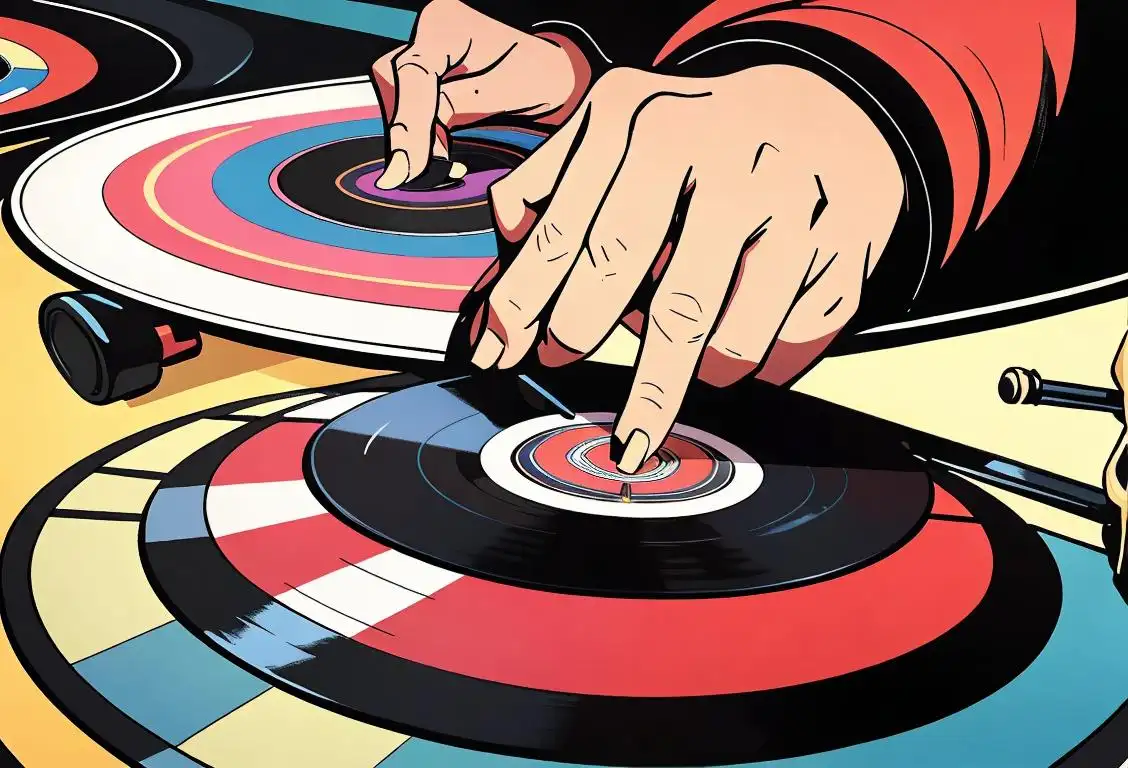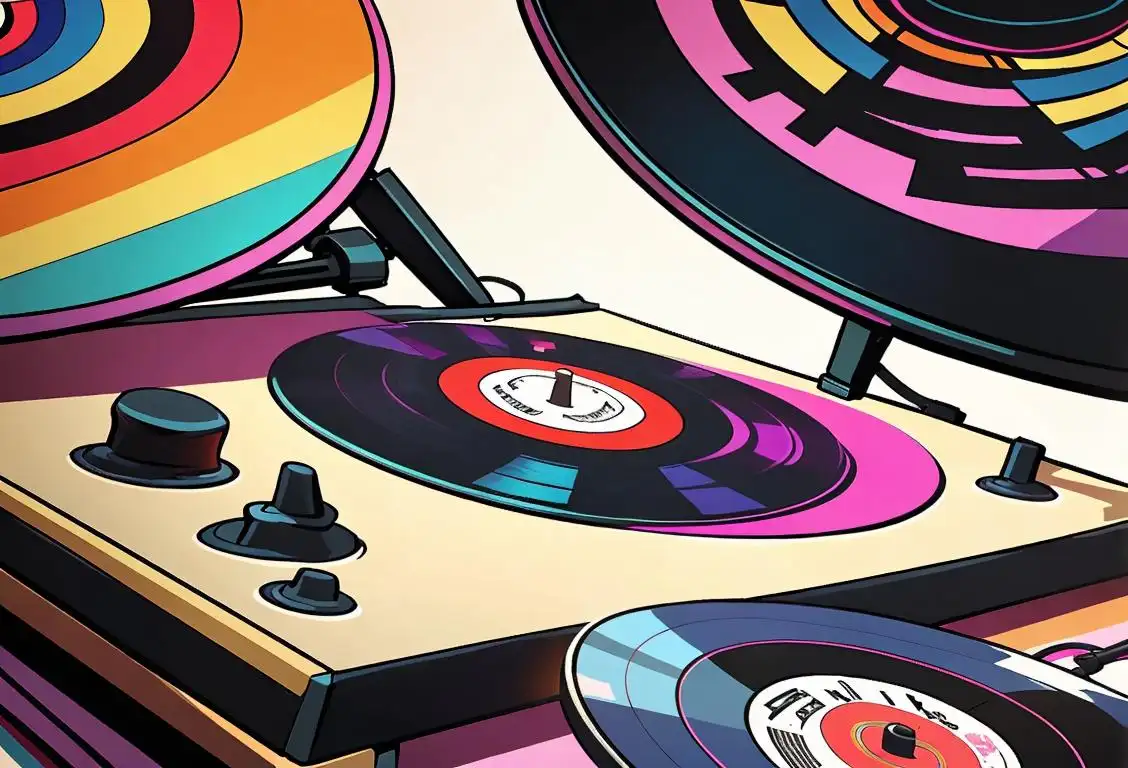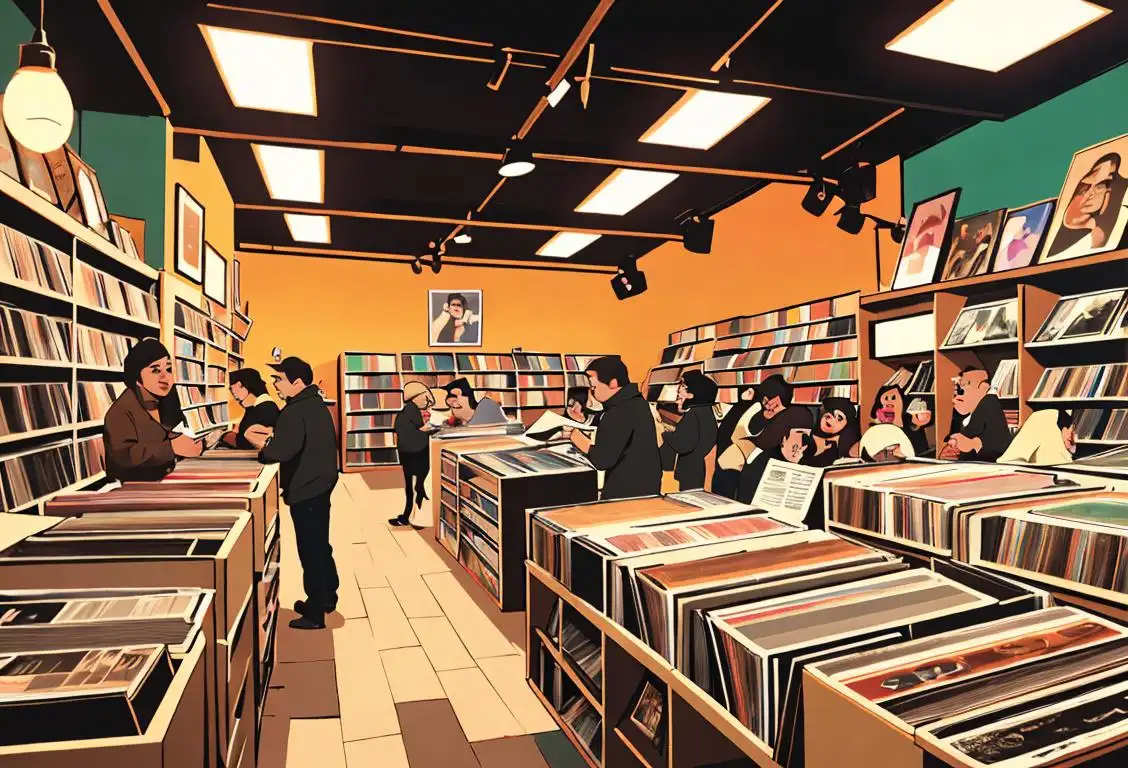National Ipod Day

Alright, folks, get ready for some serious nostalgia because it's National iPod Day! Time to dust off those sleek music-playing gadgets that were all the rage back in the day. Whether you rocked out to your favorite tunes on your commute or had an intense workout with your iPod strapped to your arm, today is the day to celebrate the iconic device that changed the way we listen to music.
When is Ipod Day?
It's national ipod day on the 23rd October.
The Birth of the iPod
Picture this: it's October 23, 2001, and Apple unveils a revolutionary product that would forever change the way we enjoy our music. The original iPod made its debut, and it was a game-changer. With its sleek design, user-friendly interface, and impressive storage capacity, the iPod quickly became a must-have for music lovers around the world.
As the years went by, Apple released various iterations of the iPod, each one more advanced than the last. From the iPod Mini to the iPod Nano and the iPod Touch, there was an iPod for everyone. People couldn't get enough of the portable music experience they offered.
The Rise of the iTunes Store
But what good is an iPod without music? Apple had an answer to that with the introduction of the iTunes Store in 2003. Suddenly, music enthusiasts had access to millions of songs at their fingertips—legally! No more hunting for CDs or illegally downloading music off the internet. With just a few clicks, you could build the ultimate music library on your iPod.
The iTunes Store revolutionized the way we consume music. Artists could share their creations with fans worldwide, and listeners had the convenience of instant access to their favorite songs. It was a win-win for everyone.
The End of an Era
As technology advanced, smartphones began taking over the duties of music players. With the rise of streaming services like Spotify and Apple Music, where you could access a vast library of songs directly from your phone, the standalone iPod gradually lost its popularity.
That being said, the iPod will always hold a special place in our hearts. It was a symbol of the digital music revolution and a testament to Apple's innovative spirit. So, let's take a moment to appreciate the impact the iPod had on our lives and the way we enjoy music today.
History behind the term 'Ipod'
2001
Birth of the iPod
In 2001, Apple introduced the iPod, a portable digital music player that would revolutionize the way we listen to music. The iPod was sleek, compact, and had a simple user interface, making it incredibly user-friendly. It had a 5GB hard drive, which could store up to 1,000 songs, and came with a non-mechanical scroll wheel to navigate through the music library.
2003
iTunes Music Store Launch
In 2003, Apple launched the iTunes Music Store, an online platform where users could legally purchase and download music directly to their iPods. This move effectively solved the issue of music piracy, offering a convenient and affordable way for people to experience music digitally. The iTunes Music Store became a massive success, reaching one million downloads within a week.
2004
iPod Mini Arrives
Apple expanded its iPod lineup in 2004 with the introduction of the iPod Mini. It was smaller and lighter than the original iPod, offering a more portable option. The iPod Mini came in vibrant colors and had a 4GB storage capacity, capturing the attention of a wider audience. This move solidified the iPod's place as a cultural icon and a must-have gadget.
2007
iPod Touch and iPhone Debut
In 2007, Apple pushed boundaries once again with the release of the iPod Touch and the revolutionary iPhone. The iPod Touch, essentially an iPhone without the cellular capabilities, featured a multi-touch display and allowed users to browse the internet, play games, and access various apps. This step marked a shift from the iPod's primary focus on music to a more versatile handheld device.
2010
iPod Nano and Shuffle Updates
Apple made significant updates to its iPod Nano and Shuffle models in 2010. The iPod Nano was redesigned to feature a touchscreen interface, while still maintaining its compact size. The iPod Shuffle received a more button-centric design, making it even more portable. These updates showcased Apple's commitment to continuous innovation and improvement, offering consumers new and exciting iPod options.
2012
The Rise of Streaming: iPod Decline
By 2012, streaming services like Spotify and Pandora began gaining popularity. With music now available on-demand from the cloud, the need for a dedicated music player like the iPod started to decline. However, Apple adapted to the shifting landscape by launching Apple Music in 2015, integrating streaming into its ecosystem. The iPod's impact on the music industry and personal listening habits is undeniable, forever reshaping how we enjoy music.
2021
Legacy and Cultural Impact
Though no longer at the forefront of the portable music player market, the iPod's legacy and cultural impact are still strongly felt. It paved the way for the digital music revolution, inspiring countless modern devices and services. The term 'iPod' has become synonymous with portable media players, forever etched in the annals of technology as a game-changer.
Present
Evolution of the iPod
While Apple no longer produces standalone iPod devices, the iPod touch continues to be available, catering to those who desire a compact, internet-enabled media device. The iPod touch has evolved to include advanced features like FaceTime, AR capabilities, and access to the App Store. It remains a popular choice for gaming, media consumption, and as an entry-level iOS device for younger users.
Did you know?
Did you know that the very first iPod could store up to 1,000 songs? That may seem like a paltry number compared to the massive storage capacities we have today, but back then, it was a game-changer!Tagged
nostalgia music technologyFirst identified
22nd October 2015Most mentioned on
23rd October 2016Total mentions
339Other days
Ipod Day
Duran Duran Appreciation Day
Jukebox Day
Vinyl Day
Landline Telephone Day
Record Store Natural Boobs Day
Vinyl Record Day
Record Store Day
One Hit Wonder Day
Jingle Day








